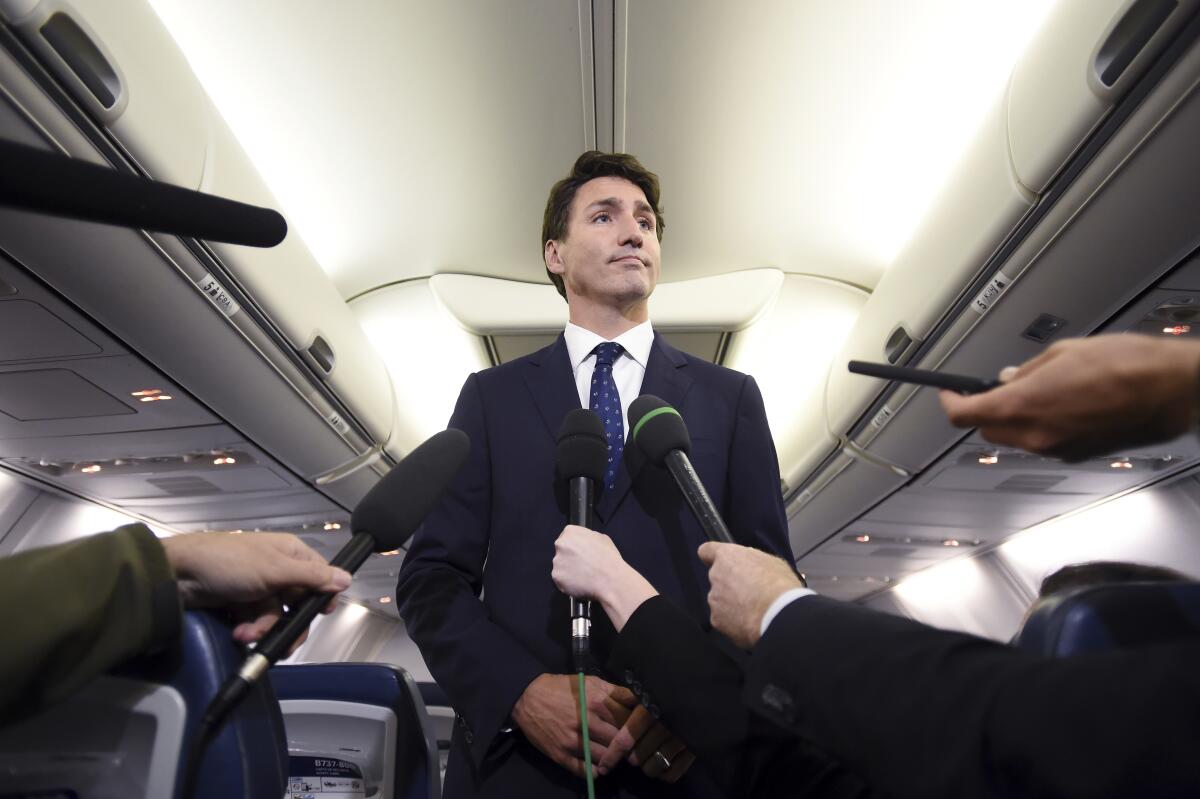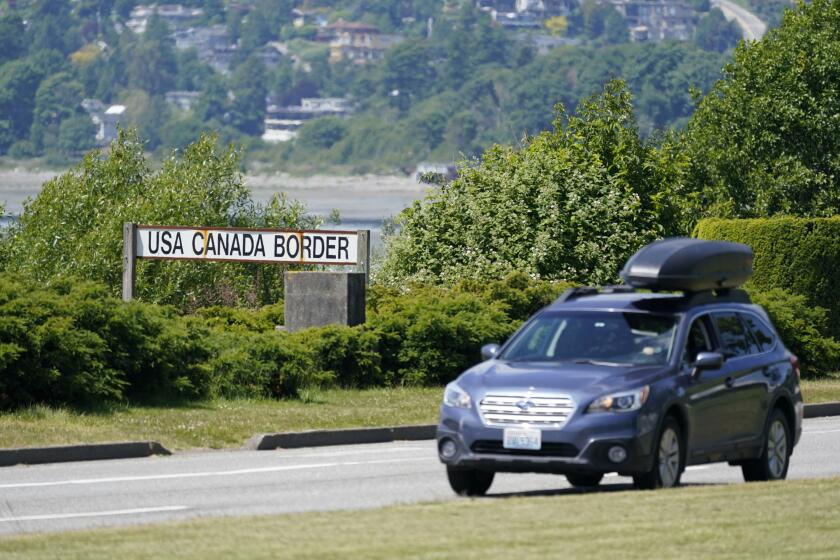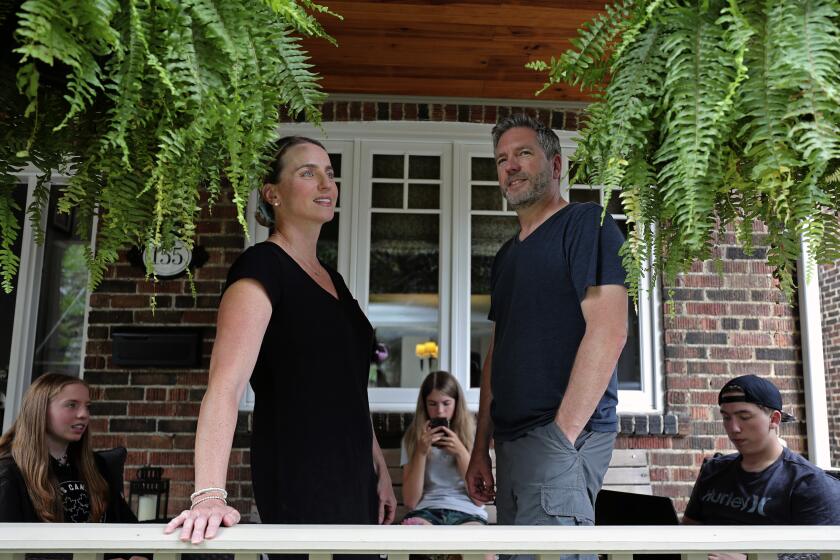Basking in vaccination success, Canada’s Trudeau is set to call Sept. 20 snap election

- Share via
TORONTO — Canadian Prime Minister Justin Trudeau will announce Sunday that he is calling a snap election for Sept. 20, an official familiar with the plans told the Associated Press.
The source, who was not authorized to speak publicly about the matter and spoke on condition of anonymity, confirmed the election date Thursday.
Trudeau is seeking to win a majority of seats in Parliament. His Liberal Party fell just short of that two years ago and must rely on the opposition to pass legislation. Trudeau wants to capitalize on the fact that Canada is now one of the most fully vaccinated countries in the world.
The Canadian premier is less popular personally than he once was, but his government’s handling of the COVID-19 pandemic has been widely viewed as a success. Canada has enough vaccine doses for every citizen and flattened the epidemic’s curve while spending hundreds of billions of dollars to prop up the economy amid lockdowns.
“Justin Trudeau’s accomplishment was to preside over a government that came up with financial, health and unemployment policies that carried us through COVID. That’s what he’s done and what he’ll run on,” said Robert Bothwell, a professor of Canadian history and international relations at the University of Toronto.
Daniel Beland, a politics professor at McGill University in Montreal, noted that Trudeau was criticized for a slow start in acquiring vaccines but is now benefiting from having more than enough for every eligible Canadian.
Canada is letting in vaccinated Americans to shop, vacation or visit, but the U.S. is keeping its COVID-19 travel restrictions in place for Canadians.
“They want to exploit this moment,” Beland said.
Beland also said Trudeau is taking advantage of a weak opposition.
“Trudeau-mania is over. If the Liberals get a majority government, it will be in part because of the weakness of the opposition parties. The conservatives are divided,” he said.
The 49-year-old Trudeau, the son of the late legendary Liberal Prime Minister Pierre Trudeau, became the second-youngest prime minister in Canadian history when he was first elected with a majority of seats in Parliament in 2015. He reasserted liberalism in 2015 after almost 10 years of Conservative Party government in Canada, but scandals combined with high expectations to dent his popularity and image.
Canada has one of the world’s highest COVID-19 vaccination rates, with 70% of adults getting at least one dose.
His father served as prime minister from 1968 to 1984 with a short interruption and remains one of the few Canadian politicians known in other countries.
The election comes as Canada’s chief public health officer, Dr. Theresa Tam, says the country is now in the midst of a fourth COVID-19 wave, driven by the Delta variant. Ontario, Canada’s largest province, reported more than 500 cases Thursday — the highest case total since mid-June.
“Now is not the time for an election,” opposition Conservative Party leader Erin O’Toole said this week. “Health, economy and the well-being of our country needs to be paramount. And I’ve asked Mr. Trudeau to put that first. I’m worried that the Liberals will put their political interests ahead of the national interest.”
Bothwell, the University of Toronto expert, said it would show Trudeau isn’t a good party leader if the Liberals don’t win a majority and are forced to rule again as a minority government.
Breaking News
Get breaking news, investigations, analysis and more signature journalism from the Los Angeles Times in your inbox.
You may occasionally receive promotional content from the Los Angeles Times.
“It’s his election to call. It’s his responsibility. If he mucks it up, he would be expected to depart whether he would do it on election night or six months on. I think at that point the knives would start to come [out],” Bothwell said.
The Liberals currently have 155 seats in the 338-seat House of Commons, while the Conservatives have 119.
The Quebec-based Bloc Québécois has 32, the leftist NDP has 24 and the Greens have two. There are also five independents, and one seat is vacant.
More to Read
Sign up for Essential California
The most important California stories and recommendations in your inbox every morning.
You may occasionally receive promotional content from the Los Angeles Times.















